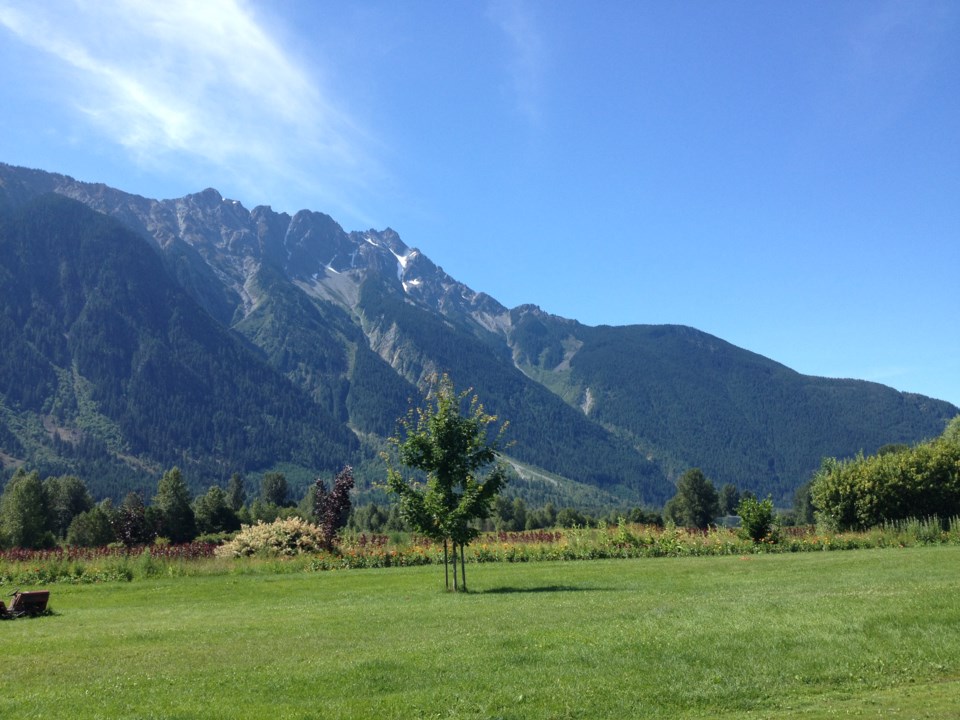With the recent high temperatures in the Sea to Sky corridor, the Village of Pemberton experienced record high water usage throughout June and July.
On June 24, the Village announced the town would be under Level 2 water restrictions, which limit household irrigation and sprinklers to two nights a week. Five days later, the Village increased the restrictions to Level 3, after using a record breaking 1,300 litres of water per capita (4.2 million litres total) on June 29—the hottest day of the year.
“So that’s pretty staggering and just to compare, I mean Squamish, they’ve been working really hard at reducing their usage, and they’re considering themselves in alarmingly high rates and we’re almost doubled [Squamish],” said Tom Csima, manager of operations and projects for the Village, of Squamish’s 851 litres of water used per capita that same day.
“So definitely there’s a direct correlation between the temperatures we’re seeing and the water usage, which is again why I would not consider this to be a leak or something that we’re not accounting for. I think it’s entirely the temperatures and heat.”
In his presentation to council on Tuesday, July 27, Csima laid out some stats on how much water can be wasted just by simple everyday tasks, like brushing teeth, doing laundry or having a shower.
“The average household can waste up to 680 litres per week, just in household leaks,” said Csima. “That’s equivalent to running 300 loads of laundry. Letting a faucet run, even for five minutes while doing your dishes, brushing teeth, shaving, that can be up to 40 litres per time. In a year that would be 1,130 [18-litre water cooler jugs] that you could save by just shutting the water off while brushing your teeth.
“The average-sized lawn in Pemberton, if it’s watered for 20 minutes a day for seven days, that’s equivalent to running your shower for four days continuously, or, to look at it another way, 800 seven-minute showers.”
In response to the water usage statistics presented by Csima, Mayor Mike Richman asked whether this staggering usage is enough to consider moving to Level 4 restrictions, which would make sprinklers and irrigation strictly prohibited. However, Csima said doing this would just punish the people who are already following the rules. What is needed, he said, is stricter punishment for the ones that are not.
Unfortunately, the Village doesn’t have the capacity to enforce the bylaws.
Concerns around water use and the ability to fight a wildfire were also discussed. With fire risk being of significant concern, “I would hope [that] opens people’s eyes,” Richman said.
There is a risk, explained Richman, around the ability for the Village to fight fires if the reservoir pumps can’t keep up with the water flow needed.
Said Csima: “The fire flows technically would be there, the problem would be the capacity.
“So if everyone continued to use water [as they are] ... then at some point … the pumps would not be able to keep up to the flow that would be going out to fight the fire.
“It would be a scary situation. We would be able to fight the fire but as a compromise, you would have to shut off water supply to other areas of town.”
A message has been sent to all of the Village’s stratas asking them to cooperate and get all the managed properties in line with the current restriction levels, which Csima will follow up on.
He would also like people to know that the bylaw restrictions only apply to irrigation and sprinkler systems, while things like hand watering flower beds and gardens are still allowed.




